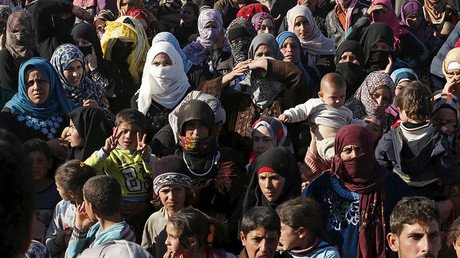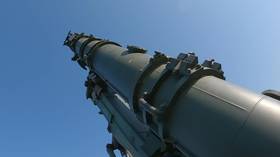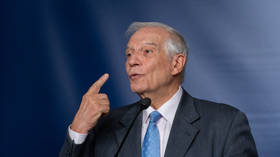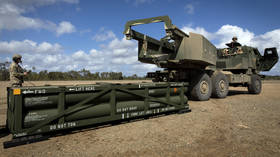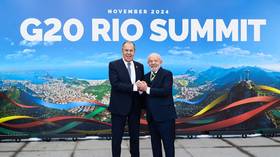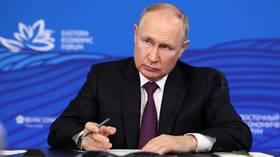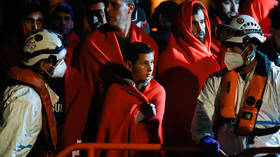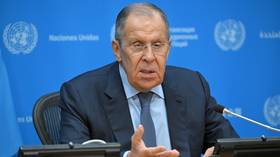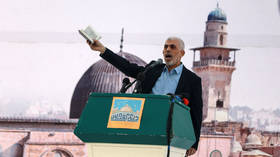Iraq needs $1.5bn in humanitarian aid amid ISIS onslaught & funding gap
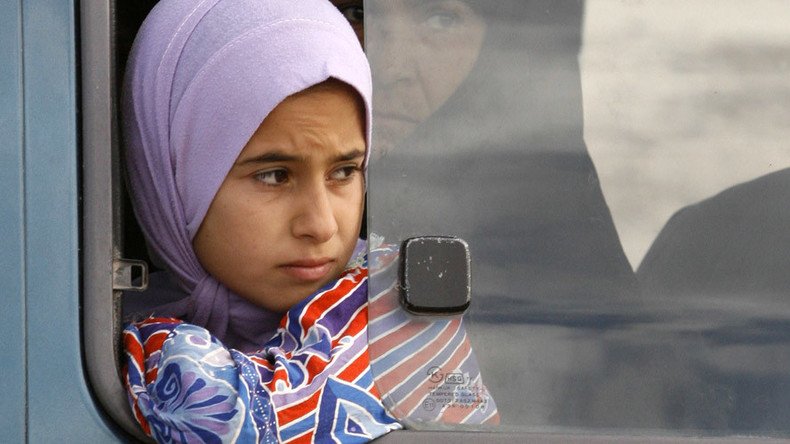
Iraq says it needs $1.56 billion in 2016 to alleviate the humanitarian crisis caused by the war against Islamic State, a government report states. Baghdad has been affected by falling oil revenues and has called on the international community for help.
The Iraqi government stated in its report, which was released Sunday, that it will only be able to provide less than 43 percent of the necessary humanitarian aid from its state budget.
"The international community is necessary for bridging the deficit or financing gap," it added, as cited by Reuters.
The #Iraq Humanitarian Response Plan launches today seeking funding to help millions affected by conflict pic.twitter.com/sioI2drr0L
— Caroline Gluck (@carogluck) January 31, 2016On Sunday, the UN issued an appeal for $861 million in order to help Iraq meet its funding gap, as it presses to help those displaced.
"With the expanding needs, the allocation through the federal budget will not be sufficient. We expect that the highly prioritised (UN) Humanitarian Response Plan will help cover part of the gap," Iraqi Minister of Migration and Displacement Jassim Mohammed al-Jaff said in a statement, according to Reuters.
Iraq has been ravaged by the conflict with Islamic State (IS, formerly ISIS/ISIL), after the terrorist group seized large areas of territory in the summer of 2014. The war has seen more than 3.3 million people displaced as they have tried to flee the fighting, according to the International Organization for Migration (IOM). Meanwhile, at least 18,800 civilians were killed and 36,240 wounded in violence in Iraq from January 2014 to October 2015, according to the United Nations.
The Iraqi government allocated around $850 million in 2015 to help with the humanitarian effort. However, they were only able to find less than 60 percent of the sum, the report stated, according to Reuters.
The medical charity Medecins Sans Frontieres (MSF) highlighted the humanitarian problem by stating that the international community may be too focused on the threat posed by IS and was ignoring the plight of millions of refugees.
The organization added that the amount of humanitarian aid should be scaled up in proportion to the escalation of military operations. MSF says that if this is not done, then the gap between the needs and the aid that is actually being provided will only widen.
Iraq’s position has been hampered by falling oil prices, but also because IS have seized some of the country’s oil wells. In October, a spokesman for the Iraq Oil Ministry said that Baghdad was losing up to 400,000 barrels of oil a day.
According to the OPEC Monthly Oil Market Report, Iraq produced 4.14 million barrels per day in September. The country is the cartel's second biggest crude producer after Saudi Arabia. However, IS has been using the oil reserves under its control, which it is selling on the black market, to help finance its reign of terror.
In December, Russia accused Turkey of helping IS in the illegal oil trade, which helps finance the terrorist group.
In October 2014, the US Under-Secretary for Terrorism and Financial Intelligence David Cohen said Islamic State was earning $1 million a day from oil sales.
